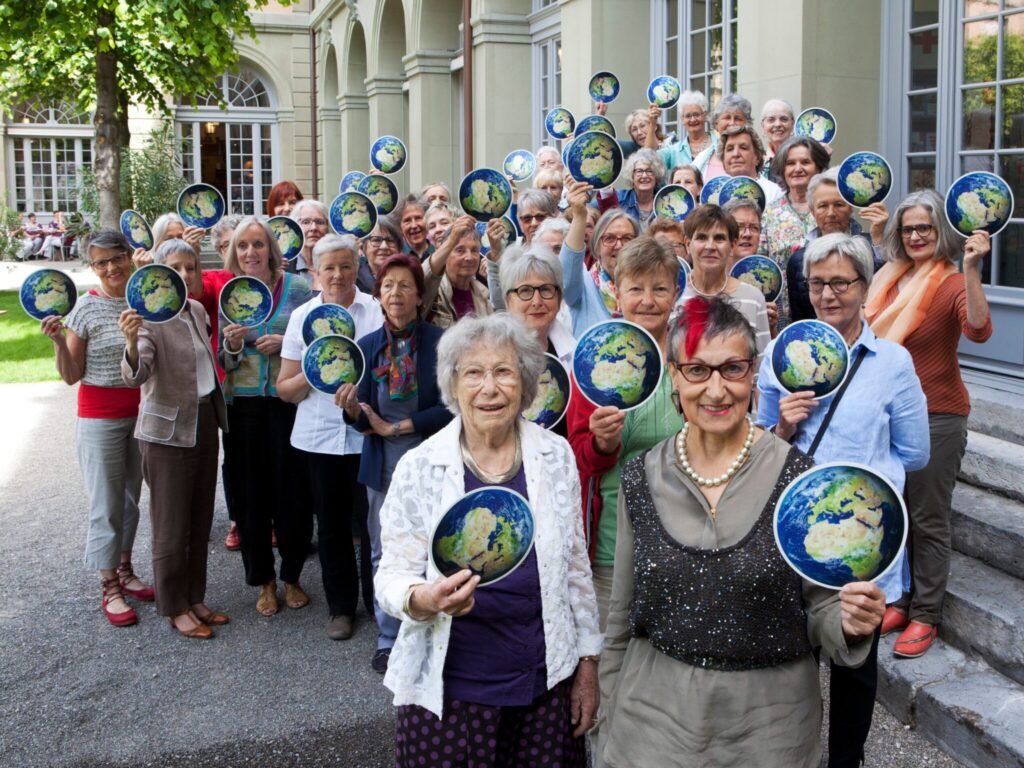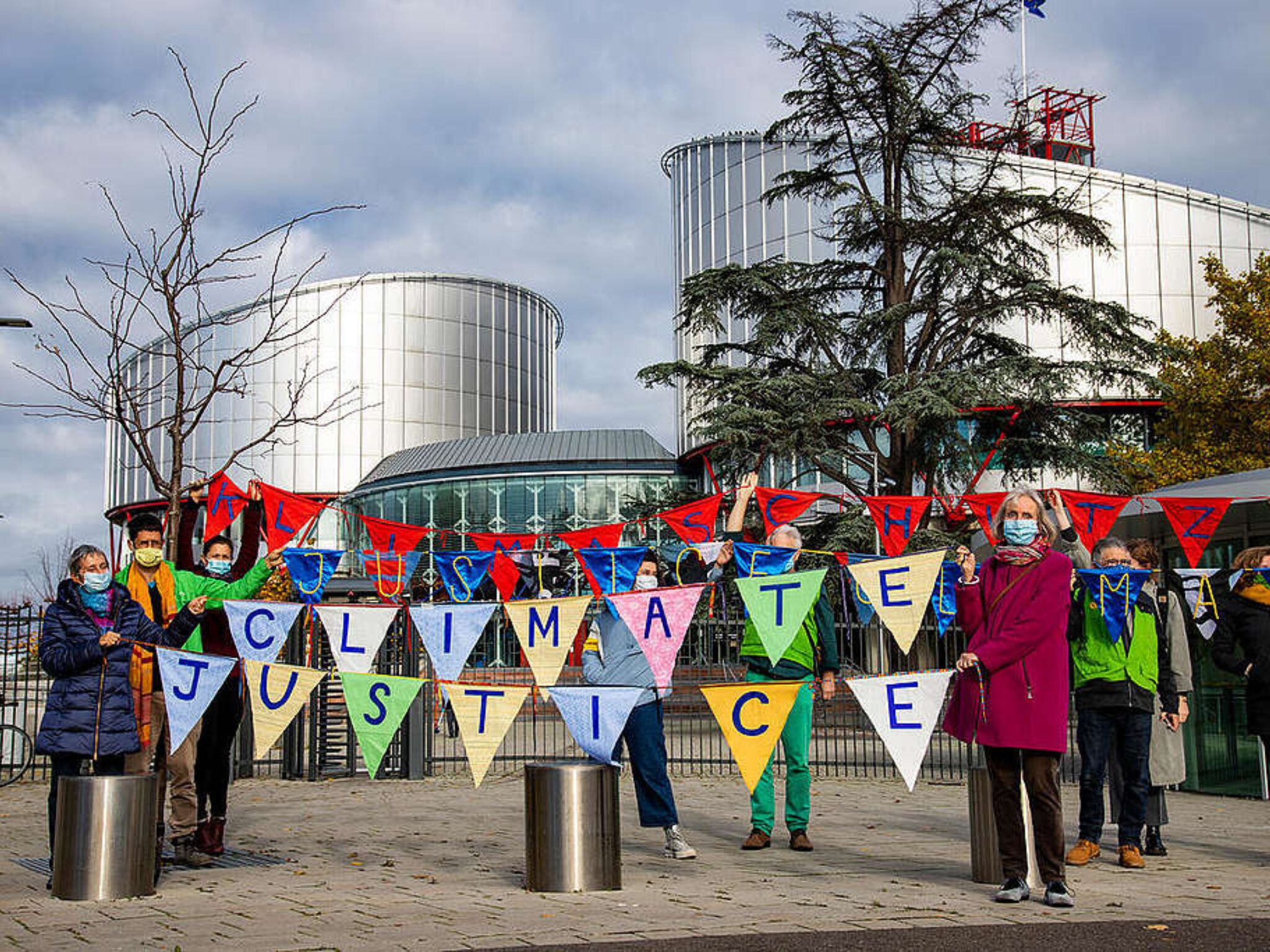‘Betrayal’: Swiss Parliament Rejects European Court’s Landmark Climate Change Ruling
6 Mins Read
Lawmakers in Switzerland have voted to disregard a human rights ruling in favour of senior female climate activists, with a particularly reprehensible stance taken by the parliament’s largest party.
In a surprising move, Swiss politicians have defied a landmark decision by the European Court of Human Rights (ECHR), which ruled that the government had violated the right to life of elderly women through its inaction on climate change.
The judgement, meted out in April, had followed an eight-year legal battle, which began with a lawsuit by the KlimaSeniorinnen, a group of 2,400 elderly women with an average age of 74. The organisation accused the Swiss government of not doing enough to combat climate change.
It argued that its members were the most affected by increasingly frequent extreme heat events, citing a UN IPCC report revealing that women and older adults are among the demographics facing the highest risks of temperature-related deaths during heatwaves.
The court in Strasbourg agreed with this argument, stating that the government had failed to comply with its duties under the European Convention concerning climate change. It directed the state to take greater action against the climate crisis by updating its policies.
But in a remarkable move, the Swiss parliament has voted not to comply with the ruling, arguing that the ECHR had overstepped its bounds and that the government had done enough to combat global warming. The outcome has raised fears that this could set a precedent with other countries facing similar litigation, which could potentially follow suit.
Far-right leader mocks Swiss women’s climate group

What Switzerland’s politicians have voted through is extraordinary – no member state of the Council of Europe (which the ECHR belongs to), has ever refused to implement a judgement.
While the decision had been adopted by the upper house of the parliament, the lower house voted to disregard it. With 111 votes in favour and 72 against, the lawmakers accused the ECHR of “inadmissible and disproportionate judicial activism”.
And although the Swiss Federal Council – a seven-member cabinet that governs the country – is free to break with the parliament’s vote and comply with the court’s judgments, the environment minister Albert Rösti has previously seemingly questioned the ruling’s impact. It must be noted that Rösti, a member of the far-right Swiss People’s Party (SVP), is a former oil lobbyist.
The SVP is the loudest voice in the lower house of the Swiss parliament, since it has the most seats. A comment made by one of its politicians encapsulated the emotion that took over the politicians during the discussion, as well as the ill feeling towards the climate activists.
Jean-Luc Addor, who was previously convicted for racism and inciting violence, said: “These ‘climate elder’ are just a bunch of apparently healthy ‘boomeuses’ [female boomers], who are trying to deny our children the living conditions they have enjoyed all their lives.”
Corina Heri, a law researcher at the University of Zürich told the Guardian that this move is “terrible from a rule-of-law perspective”, stating that “the whole system would fall apart” if lots of other countries begin picking and choosing which rulings they want to comply to. “The term ‘slippery slope’ is overused, obviously, but it is a dangerous precedent to create,” she added.
KlimaSeniorinnen co-president Rosmarie Wydler-Wälti said she was appalled by the move, calling it unworthy of a constitutional state: “The declaration is a betrayal of us older women – and of all those who are suffering from the real consequences of global warming today and in the future.”
KilmaSeniorinnen could appeal Swiss non-compliance

In November, Switzerland will mark the 50th anniversary of its ratification of the European Convention on Human Rights, which legally obliges member states to implement the ECHR’s judgements.
While countries have a tendency to drag implementation – nearly half of all leading rulings by the court in the last decade are still pending full implementation, and take over six years on average – former ECHR judge Helen Keller told Reuters that the Strasbourg court was asking less of the government than other national courts in similar cases.
For example, a 2019 judgement by the Dutch High Court had ordered the Netherlands to accelerate its greenhouse gas emissions reduction measures by ensuring that they were at least 25% below 1990 levels by the end of 2020.
Prior to the Swiss parliament’s discussion, the KlimaSeniorinnen and climate activism group Greenpeace had submitted a petition with 22,000 signatures that called on politicians to recognise that human rights are the foundation of democracy and should be independent of political majorities.
The climate elder group can complain to the Council of Europe if it feels the government is non-compliant. A committee of the Council meets four times a year to monitor adherence to ECHR decisions, and a lawyer for the KilmaSeniorinnen told Reuters that it is considering appealing to this committee, and might do so even before the October deadline, given the parliament’s actions.
The committee can refer cases back to the court in exceptional cases, having done so twice in the ECHR’s 65-year history. Expulsion from the Council is also a possibility, and countries can also leave the convention if they no longer want to comply, but experts say it’s unlikely either of those would happen. Instead, Switzerland is expected to come under pressure to accept the court’s ruling.
A marker of Europe’s far-right trajectory

So what could compliance look like? The legal counsel for the group that brought the case against the Dutch government, Dennis van Berkel, said it would need a change in policy, as Switzerland’s current share of the global carbon budget is twice the size of its population.
The country’s existing commitments outline a 50% reduction in emissions by 2030 (from 1990 levels). But its policies have been deemed “insufficient” by the Climate Action Tracker, which adjudged national action against the 1.5°C goal.
Looking at opinion polls, it’s hard to gauge what the Swiss public makes of all this. While many are worried about the fact that the government isn’t on course to meet Paris Agreement targets, a majority of voters also reject the ECHR’s involvement. They believe Switzerland is already doing enough in terms of climate action, highlighting the contradictory attitudes towards the issue.
The parliament’s declaration is also being viewed as a threat to other such litigations, both ongoing and in the future. Isabela Keuschnigg, a legal researcher at the London School of Economics (LSE), told Reuters that if the government refused to implement the ruling, it could “set a concerning precedent, undermining the role of legal oversight in democratic governance”.
And if countries left the European convention, it would have “significant political and social repercussions”, according to Joana Setzer, a climate litigation expert at LSE.
The decision puts the government in a difficult position, said Evelyne Schmid, an international law professor at the University of Lausanne. “Members of parliament and everyone else can criticise judgments they don’t like – that’s of course legitimate in a democracy, and courts exist precisely for situations in which there is disagreement,” she told the Guardian. “But a parliament officially accusing the institution of ‘undue judicial activism’ sends a different, problematic message.”
This declaration, as well as comments made by the SVP’s Addor, reflect the shifting political landscape in Europe. The EU (which Switzerland isn’t a part of) just elected a parliament where the far-right made major gains and the Greens lost a lot of sway, and there’s real apprehension about its potential detriment to the bloc’s climate action.
Time will tell, of course. Meanwhile, Switzerland’s glaciers continue to melt.



